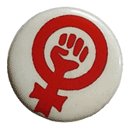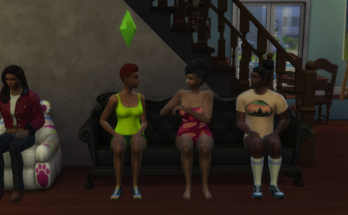By Emily Ann Morton
Omegle is not a safe online space for women of color. I came to this conclusion based on the first few interactions I had on the site. What still intrigues me, however, is the variety of people I encountered and the types of conversations I engaged in during the several hours I spent chatting on Omegle. In my experience thus far, Omegle has not proven itself to be a space in which to participate in relevant and worthwhile conversation. My attempts to engage in any nonsexual, inoffensive conversation proved very difficult, and when such conversations did occur, they were few and far between. My inability to stimulate consequential discussion could conceivably be my fault as I am not well versed in the area of internet chatroom debate, which leads me to wonder if everyone’s experience on Omegle is similar to mine. My question, therefore, is:
Does Omegle have the capacity to be a platform for intellectual discourse and meaningful conversation among strangers online?
I used the “Spy (Question) Mode” on Omegle as a method of collecting data to obtain solid answers to this question. The “Spy (Question) Mode” allows me to type in a question and observe as two strangers, theoretically, discuss the question in real time. I alternated using the above question verbatim with other similar but differently worded versions of the same concept. For example, I posed my question several times, followed by phrases like, “If so, prove it,” and “Why or why not?” in an attempt to prompt further discussion on the topic. In order to gain as much useful data as possible, I copied and pasted the question and started several chats in different windows at once, giving me a better probability of witnessing some sort of interesting interaction between the users. I spent a total of about two hours witnessing the exchanges between strangers until I felt I had sufficient information to present and analyze the outcome.
The results of the method I used, some of which are posted on my project’s Tumblr, are interesting, but overall unremarkable. The reason why I had to spend so much time on the site is because of how frequently one or both of the users disconnected from the conversation before typing anything. That in and of itself is quite telling of the space; if the users of Omegle are posed with a thought provoking question, they will not engage in the conversation at all, instead moving on to be asked another question by someone else. I received a large mix of one word answers, “yes” and “no.” Several users answered, “Yes, but it is very rare,” an answer that I eventually came to agree with. In a few instances, the strangers would begin discussing a matter completely irrelevant to the question I posed. Out of the seemingly endless amount of chats I posed my question to, only two escalated into a lengthy discourse of legitimate substance. As the observer of both of these conversations, it is clear to me that in these two rare instances, both “strangers” seem to be relatively intelligent and erudite individuals who are capable of and interested in having an at-length, stimulating exchange. This contrasts with most of the other essentially failed chats, wherein one or both of the “strangers” were either uninterested in or intellectually incapable of participating in a thought-provoking dialogue.
Based on the results I obtained, I come to the conclusion that, as a platform, Omegle has the potential to be a space for intellectual discourse; however, its users, for the most part, often prevent the space from being anything more than an online chat room for bored teenagers and middle-aged perverts. Although the site does have the capacity to be a space for meaningful conversation, the probability of a user randomly coming across another stranger who is equally as willing to take part in a thoughtful exchange is frustratingly rare. Omegle has the potential to be a space for meaningful discussion in that if there were a way to censor the site’s users, filtering out the people who make the site a notoriously sexual space and leaving in the individuals actually trying to have meaningful conversations, the site, although being completely altered from its original open-chatroom format, would be a more reliable space for people looking to engage in sophisticated dialogue. Everything considered, it is safe to say in the event that I crave an intellectually stimulating conversation with someone, I would be better off chatting with my friends than trying to find a person I can relate to in the vast and unpredictable online space that is Omegle.
—————-
Selected Omegle chat logs: http://mortonea.tumblr.com/


Let’s have a flash feminist flood on Omegle and see what happens!
Disconnecting from a conversation so easily could make Omegle a frustrating space to continue the intellectual conversations at. However, I also think that the possibility of disconnecting makes Omegle a safe space. At any time you feel uncomfortable engaging with someone, it allows you to disconnect right away even without thinking.
I agree with Alejandra. It would be fascinating to see what would happen if we got thousands of feminists from all over the world to log on at once and turn the conversations to feminism!
the ability to disconnect for me would appear as a mode of exercising agency in a site where anonymity is key. But it also alludes to the questioning of the purposes. This site has not been set up as a place for conversation, but merely a pass time. I find through my experiences that there are more men, or masculine avatars, then there are women, or feminine avatars. What does the body of the population within this space say about the space itself? How is sexuality being augmented through anonymity? Would we find these individuals approaching each other in the same manner when in real life? How does x-reality augment this space?
Your comments about potentiality rather than actuality or use are really helpful for us: what other norms, checks, systems, structures inhere to this place to transform the culture to be about light, inane, sexuality above all other possibilities?